
The United States Customs Service was the very first federal law enforcement agency of the U.S. federal government. Established on July 31, 1789, it collected import tariffs, performed other selected border security duties, as well as conducted criminal investigations.
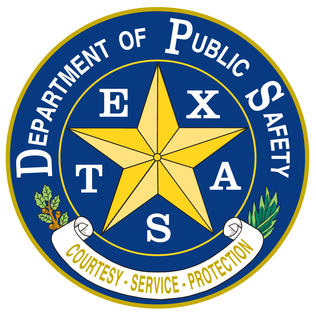
The Department of Public Safety of the State of Texas, commonly known as the Texas Department of Public Safety (DPS), is a department of the state government of Texas. The DPS is responsible for statewide law enforcement and driver license administration. The Public Safety Commission oversees the DPS. However, under state law, the Governor of Texas may assume command of the department during a public disaster, riot, insurrection, formation of a dangerous resistance to enforcement of law, or to perform his constitutional duty to enforce law. The commission's five members are appointed by the governor and confirmed by the Texas Senate, to serve without pay for staggered, six-year terms. The commission formulates plans and policies for enforcing criminal, traffic and safety laws, preventing and detecting crime, apprehending law violators, and educating citizens about laws and public safety.

Law enforcement in Australia is one of the three major components of the country's justice system, along with courts and corrections. Law enforcement officers are employed by all three levels of government – federal, state/territory, and local.
Inspector, also police inspector or inspector of police, is a police rank. The rank or position varies in seniority depending on the organization that uses it.
A law enforcement officer (LEO), or peace officer in North American English, is a public-sector employee whose duties primarily involve the enforcement of laws. The phrase can include campaign disclosure specialists, local police officers, prosecutors, municipal law enforcement officers, health inspectors, SWAT officers, customs officers, lawyers, state troopers, federal agents, secret agents, special investigators, coast guards, border patrol officers, judges, district attorney, bounty hunters, gendarmerie officers, immigration officers, private investigators, court officers, probation officers, parole officers, arson investigators, auxiliary officers, animal control officers, game wardens, park rangers, county sheriff's deputies, constables, marshals, detention officers, correction officers, sworn campus police officers, militsiya officers and public safety officers. Security guards are not law enforcement officers, unless they have been granted powers to enforce particular laws, such as those accredited under a community safety accreditation scheme such as a security police officer.
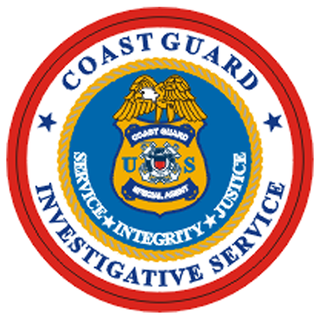
The Coast Guard Investigative Service (CGIS) is a division of the United States Coast Guard that investigates crimes where the U.S. Coast Guard has an interest. It is composed of civilian (GS-1811), active duty, reserve enlisted, and warrant officer special agents.

The Michigan State Police (MSP) is the state police agency for the U.S. state of Michigan. The MSP is a full-service law enforcement agency, with its sworn members having full police powers statewide.

A border guard of a country is a national security agency that performs border security. Some of the national border guard agencies also perform coast guard and rescue service duties.

The Wisconsin State Patrol is the state patrol for the state of Wisconsin and is a division of the Wisconsin Department of Transportation. The Wisconsin State Patrol enforces traffic and criminal laws, oversees the motor carrier safety and weight facilities (SWEFs), inspects and regulates motor carriers, school buses and ambulances, and assists local law enforcement agencies with traffic safety, civil disturbances and disasters.

The Florida Highway Patrol (FHP) is a division of the Florida Department of Highway Safety and Motor Vehicles. It is Florida's highway patrol and is the primary law enforcement agency charged with investigating traffic crashes and criminal laws on the state's highways.
Law enforcement in Indonesia is mainly performed by the Indonesian National Police (POLRI), together with other law enforcement agencies which are under the president, a certain ministry or State-owned company (BUMN) which perform policing duties for a certain public service, these law enforcement agencies are under supervision and are trained by the Indonesian National Police. The Indonesian National Police is basically the national civilian police force of the country responsible for enforcing law and order of the state.
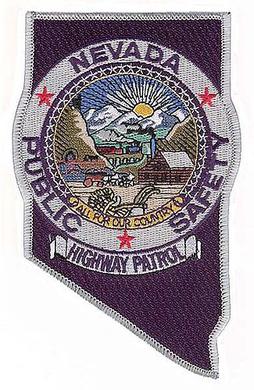
The Nevada State Police (NSP), also known as the Nevada Department of Public Safety (DPS) from roughly 1949 to 2021, is the state police and highway patrol agency of Nevada, with state-wide jurisdiction. The Nevada State Police also encompass the Division of Parole and Probation, the Capitol Police Division, the Division of Investigations, the Office of Professional Responsibility, the Fire Marshall Division and the Records, Compliance and Communications Division as well as various other smaller entities.
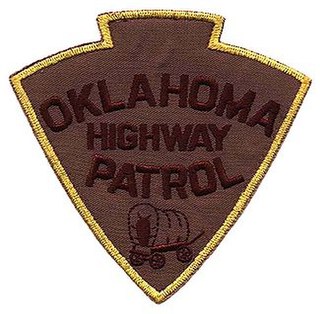
The Oklahoma Highway Patrol (OHP) is a major state law enforcement agency of the government of Oklahoma. A division of the Oklahoma Department of Public Safety, the OHP has traffic enforcement jurisdiction throughout the state. OHP was legislatively created on July 1, 1937, due to the growing problem of motor vehicle collisions, the expansion of highway systems, and the increase in criminal activities.
Law enforcement in Sri Lanka falls under the jurisdiction of the Sri Lanka Police, the national law enforcement agency, along with local community police and Grama Niladhari.
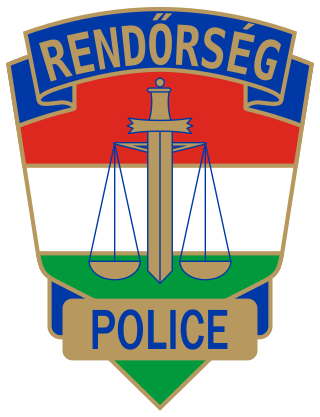
Law enforcement in Hungary is split among the Police and Border Guards, and the Customs and Excise Authority. Since 2006, the Police has been subject to the Ministry of Justice, when the Ministry of Interior was re-structured to deal with Municipalities and Regional Development. Due to Hungary's accession to the Schengen Treaty, the Police and Border Guards were merged into a single national corps, with the Border Guards becoming Police Officers. This merger took place in January 2008. The Customs and Excise Authority remained to be subject to the Ministry of Finance.
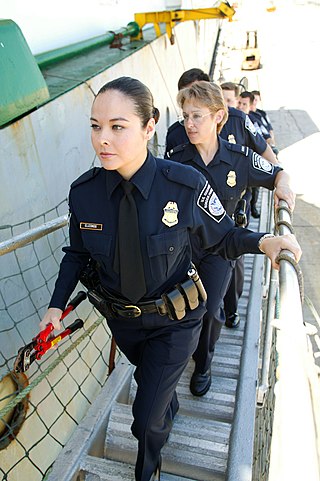
The federal government of the United States empowers a wide range of federal law enforcement agencies to maintain law and public order related to matters affecting the country as a whole.

The Royal Malaysian Customs Department is a government department body under the Malaysian Ministry of Finance. RMCD functions as the country's main indirect tax collector, facilitating trade and enforcing laws. The top management of JKDM is led by the Director General of Customs and assisted by 3 deputies, namely, the Deputy Director General of Customs Enforcement/Compliance Division, the Deputy Director General of Customs Customs/Inland Tax Division and the Deputy Chief Director of Customs Management Division. The Royal Malaysian Customs Department consists of several divisions, namely the Enforcement Division, the Inland Tax Division, the Compliance Division, the Customs Division, and the Technical Services Division.
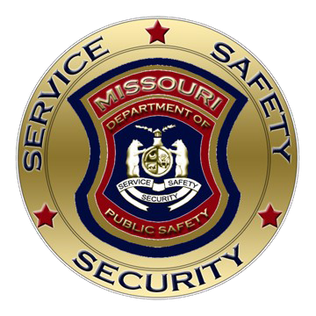
The Department of Public Safety of the State of Missouri, commonly known as the Missouri Department of Public Safety (DPS), is a department of the state government of Missouri.

In the United States, the state police is a police body unique to each U.S. state, having statewide authority to conduct law enforcement activities and criminal investigations. In general, state police officers or highway patrol officers, known as state troopers, perform functions that do not fall within the jurisdiction of the county sheriff, such as enforcing traffic laws on state highways and interstate expressways, overseeing the security of the state capitol complex, protecting the governor, training new officers for local police forces too small to operate an academy and providing technological and scientific services. They support local police and help to coordinate multi-jurisdictional task force activity in serious or complicated cases in those states that grant full police powers statewide.